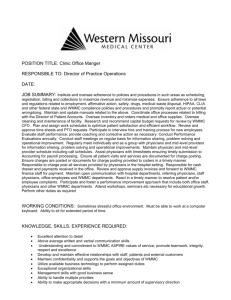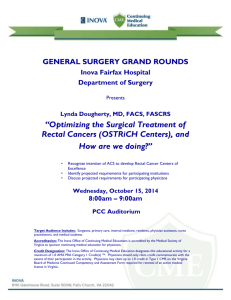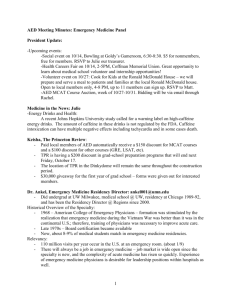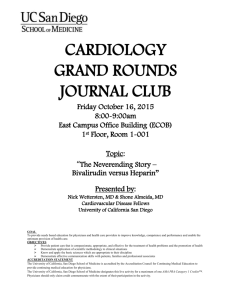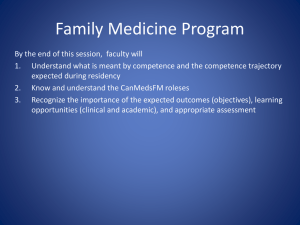Family Medicine - Department of Family & Preventive Medicine
advertisement
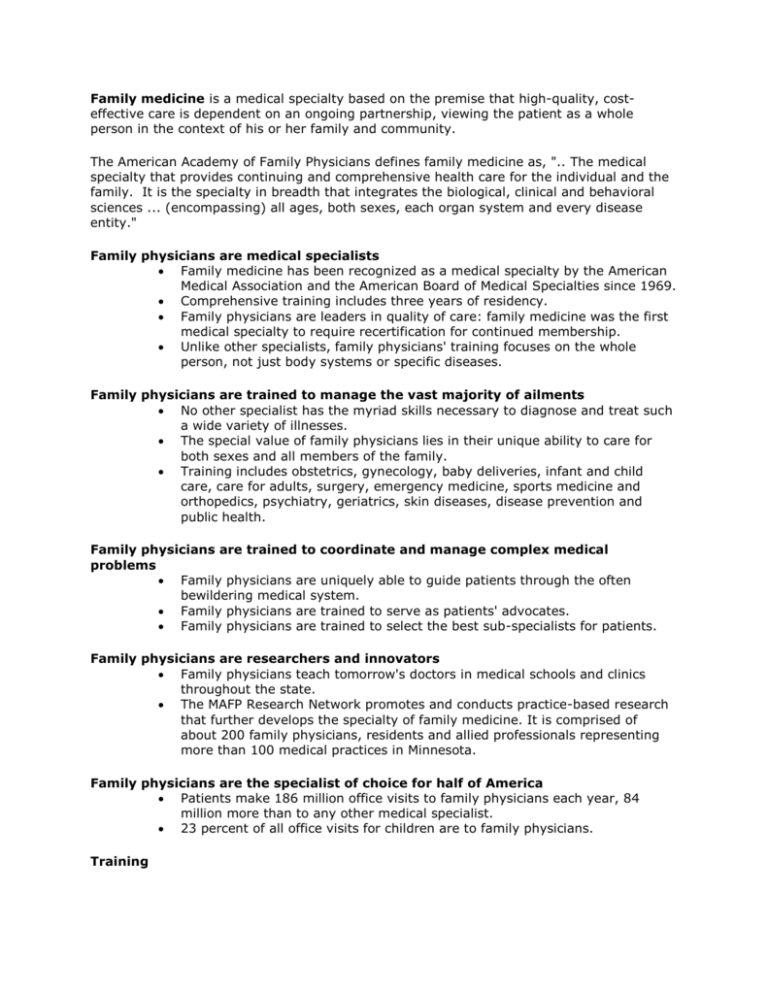
Family medicine is a medical specialty based on the premise that high-quality, costeffective care is dependent on an ongoing partnership, viewing the patient as a whole person in the context of his or her family and community. The American Academy of Family Physicians defines family medicine as, ".. The medical specialty that provides continuing and comprehensive health care for the individual and the family. It is the specialty in breadth that integrates the biological, clinical and behavioral sciences ... (encompassing) all ages, both sexes, each organ system and every disease entity." Family physicians are medical specialists Family medicine has been recognized as a medical specialty by the American Medical Association and the American Board of Medical Specialties since 1969. Comprehensive training includes three years of residency. Family physicians are leaders in quality of care: family medicine was the first medical specialty to require recertification for continued membership. Unlike other specialists, family physicians' training focuses on the whole person, not just body systems or specific diseases. Family physicians are trained to manage the vast majority of ailments No other specialist has the myriad skills necessary to diagnose and treat such a wide variety of illnesses. The special value of family physicians lies in their unique ability to care for both sexes and all members of the family. Training includes obstetrics, gynecology, baby deliveries, infant and child care, care for adults, surgery, emergency medicine, sports medicine and orthopedics, psychiatry, geriatrics, skin diseases, disease prevention and public health. Family physicians are trained to coordinate and manage complex medical problems Family physicians are uniquely able to guide patients through the often bewildering medical system. Family physicians are trained to serve as patients' advocates. Family physicians are trained to select the best sub-specialists for patients. Family physicians are researchers and innovators Family physicians teach tomorrow's doctors in medical schools and clinics throughout the state. The MAFP Research Network promotes and conducts practice-based research that further develops the specialty of family medicine. It is comprised of about 200 family physicians, residents and allied professionals representing more than 100 medical practices in Minnesota. Family physicians are the specialist of choice for half of America Patients make 186 million office visits to family physicians each year, 84 million more than to any other medical specialist. 23 percent of all office visits for children are to family physicians. Training Family physicians are specialty-trained in formal, three-year residency programs. The curriculum includes training in: the medical care of children, adults and elderly patients prenatal and infant care, including delivery ambulatory and hospital surgical procedures human behavior and psychological intervention emergency care sports medicine and common orthopedic problems laboratory medicine and diagnostic imaging interpretation health promotion, disease prevention and patient education practice management Realizing that a family doctor's effectiveness depends on sound, up-to-date continuing education, the AAFP requires that members complete a minimum of 150 hours of approved continuing education every three years to retain membership. The requirement was unique when introduced, but through the years has become a standard for an increasing number of other medical groups. The specialty's certifying board requires recertification every six years.


